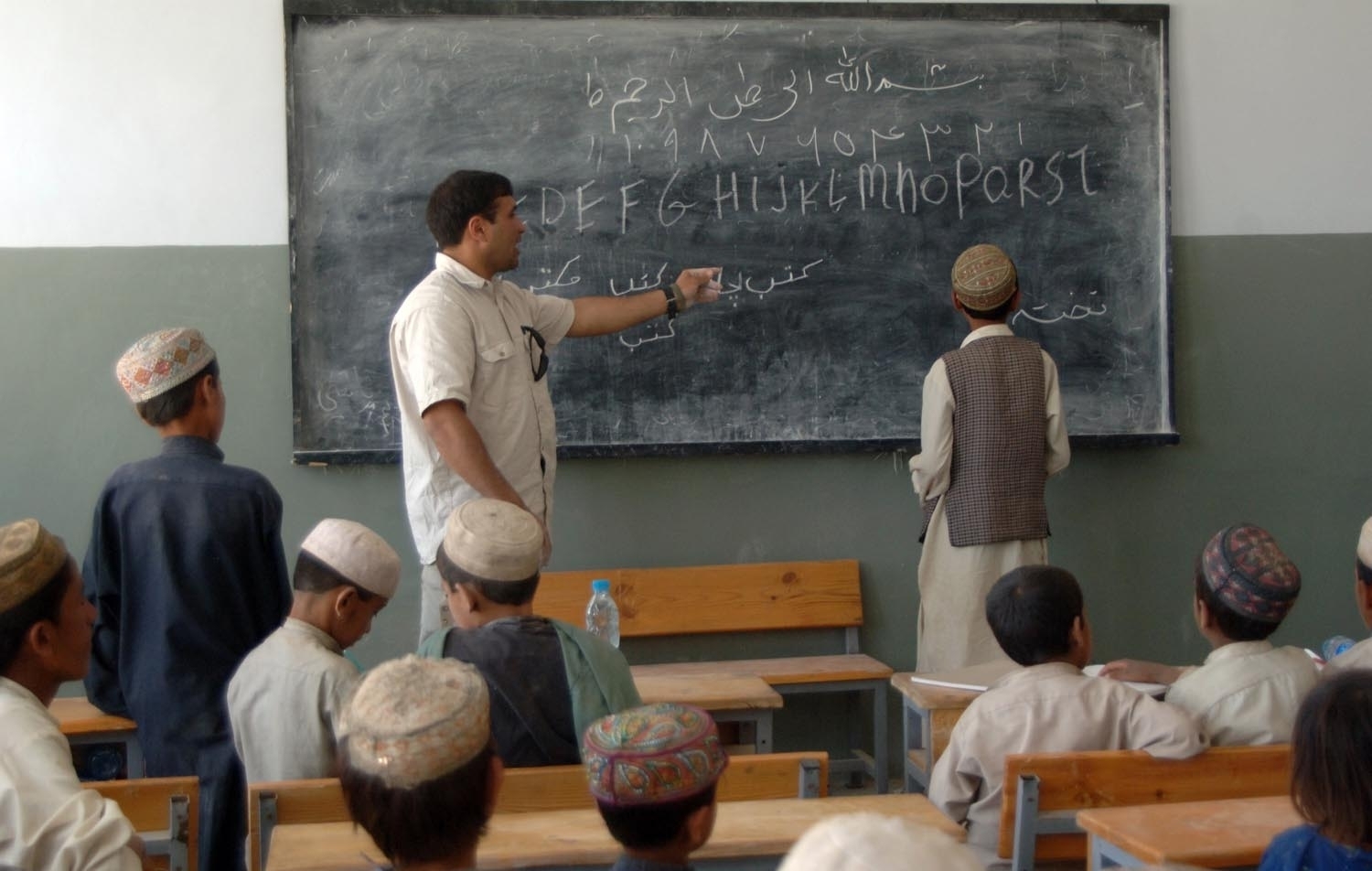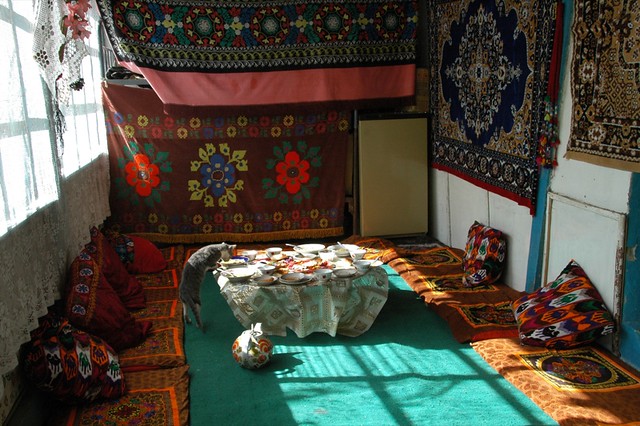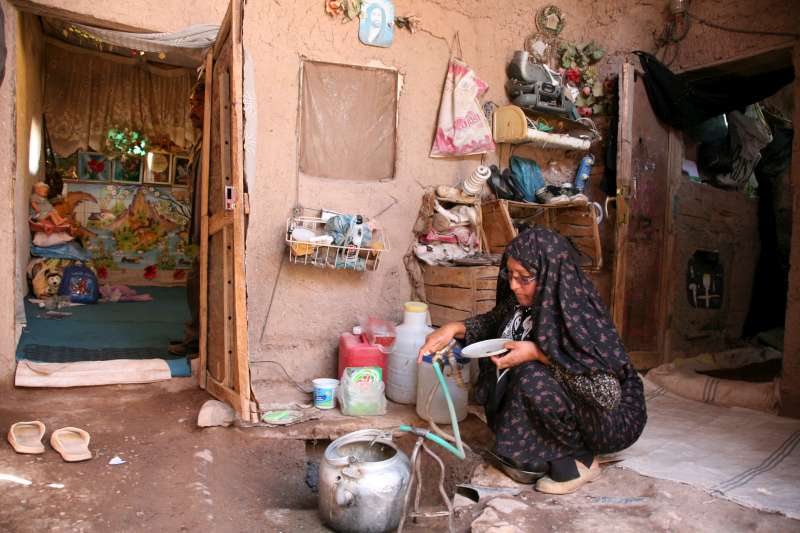Life In Afghanistan
A day in the life of Gul Bahar: an Afghan school girl

|
||||||||||
|
6:30pm: Wash up the dishes. |
||||||||||
|
6:45pm: Homework Reviewing the day’s lessons and preparing for tomorrow. |
||||||||||
|
7:45pm: Bed, ready for another busy day tomorrow! |
||||||||||
|
|
Afghan Homes
 - Afghan homes have thin mattreses all around the walls, these are used for sitting and sleeping
- Afghan homes have thin mattreses all around the walls, these are used for sitting and sleeping
-The sitting/sleeping room is the main room in the house.
-It is not uncommon to find 10 to 15 people in one house due to the lack of money.
This is the kitchen. It has pots, pans, a water bucket and [usually] that's it. 
Some English phrases translated into Duri: a popular language in Afghan.
| English | Duri |
| Hi | Salam |
| Good morning | Sobh bekheir |
| Good afternoon | Baad az zohr bekheir |
| Thank you | Mersi, mamnoon |
| Happy Birthday! | Tavaloodat mobarak! |
| See you soon | Bezoodi shoma rabeibman |
| Come in! | Biatoo! |

By using this site you agree to this Privacy Policy. Learn how to clear cookies here
安邦车险:保护您的爱车,安心出行 Bong Da INFO – Nền tảng bongdalu mobi đáng tin cậy cho người yêu bóng đá John Cena, l'homme derrière le catcheur Tyheir Duchel: The Rising Star of Pop Music Tyheir Munnich Shares His Unforgettable Travel Adventure! Tyheir Llinares Finds Adventure in the Enchanted Forest xgyphx It also says she loves him วี คลินิกกายภาพบำบัด ปากเกร็ด บางบัวทอง 081-727-8955 ptieuf Marry in the lavender fields